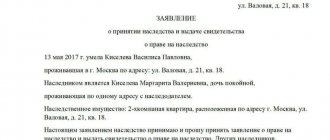Many believe that the legal practice of a man paying maintenance to his divorced wife, and even the expression “wife alimony” itself, fell out of use along with the development of women’s emancipation. But that's not true. According to Russian laws, in some cases a woman can count on alimony from her husband, not only her former husband, but also her present one.
And this will be alimony intended specifically for the spouse, and not for the child. Children's fees are paid separately. A pregnant woman caring for certain categories of children who is disabled is entitled to alimony. The conditions that are necessary to receive alimony will be discussed in the article.
Is a common-law wife entitled to alimony?
Many modern people are quite skeptical about the institution of marriage, believing that “a stamp in a passport does not change anything.” They live together and have children in a so-called “civil marriage.” By the way, the name is erroneous, since a civil marriage was originally called a marriage registered by state authorities, as opposed to a church one.
When applied to emotions, the “stamp” really “doesn’t change anything.” In the social space, everything changes radically. “Civil” couples often face unpleasant consequences that they do not think about at the beginning of the relationship. During separation, no court will help to fairly divide property and protect housing rights. Civil spouses are not included in the list of legal heirs. In the event of an emergency, they often cannot obtain information about their “other half”, because... it is given only to relatives, etc.
Same with alimony. Only the “real” wife has the right to them. “Civil” is not entitled to anything by law. She will receive child support (if paternity is voluntarily recognized by the man or proven by the court). Never on yourself.
Features of payment of state duty
When a woman is the recipient of an inheritance under a will, she will need to pay a state fee in the amount of 0.6% of the value of the inherited property ( maximum 1 million rubles ). When a woman has a disability group of 1 or 2, she pays half of the amount established by law, and if she lived with her ex-husband in the same territory and was a dependent, then she is exempt from paying the state fee.
Alimony for wife during marriage
Financial support by spouses for each other is not only “normal” and “natural”. Its necessity is legislated (Article No. 89 of the RF IC).
This requirement of law and morality becomes especially relevant in the case of joint children. A pregnant woman, and a woman caring for a baby, is not able to earn her own living. “Children’s” state benefits are not designed to allow a mother and child to fully exist without it - it is only a small material benefit to ease the parental burden, intended exclusively for the needs of the child within the framework of state protection of his rights.
In such a situation, taking full responsibility for providing for the family is the direct duty of a man. And if he evades him, the law comes to protect the rights of his wife.
A woman can apply for alimony through the court and get her husband to allocate a certain amount of money for her monthly living.
Ex-wife's right to inheritance if there are children
Part 1 art. 64 of the RF IC regulates that parents are the legal representatives of their minor children and act in defense of their rights and interests. Thus, parents represent the interests of the child in all organizations and government bodies, including notaries and courts without special authority.
When considering the features of inheritance, you should refer to Art. 1142 of the Civil Code of the Russian Federation, according to which children are heirs of the first priority. In this case, the parent, that is, the ex-spouse, must act on behalf of the child. This does not mean that the inheritance is transferred directly to the woman and the property rights are transferred to her. Despite the fact that the ex-wife acquires part of the inheritance, the property is transferred to the child, who, upon reaching the age of 18, fully owns, uses and disposes of the objects.
In what cases does a husband pay alimony to his wife?
So, according to the already mentioned article of the RF IC No. 89, in order to collect alimony from a husband for the maintenance of his wife, the following conditions are necessary:
- Officially registered marriage
- Wife who is unable to work and in need of financial support
The following circumstances make a woman unable to work and/or in need of financial support:
- Pregnancy
- Being on maternity leave (and a child under three years old)
- Caring for a disabled child under 18 years old, plus her insufficient income
- Caring for a child recognized as a disabled child, regardless of age (disability groups I and II), plus her insufficient level of income
- Her personal and/or health-related disability
Let us dwell in more detail on the most common grounds for a wife to receive alimony from her husband.
Alimony for pregnant wife
Carrying a child in common with a man is a legal reason to seek financial support from your husband (or to the court, if the husband is against supporting his pregnant wife). No additional basis for alimony other than pregnancy is required. A simple certificate from the antenatal clinic is enough.
Alimony for a pregnant wife can be assigned both during marriage and after divorce.
ATTENTION! In legal practice, the father of an unborn child is automatically a man married to his mother. The “law of 300 days” is also in force (Article No. 48 of the RF IC). A man is considered the father of his ex-wife's child if less than 300 days have passed between the date of divorce and the birth of the child. If a man doubts his biological paternity, he will have to resort to genetic testing. There is no other way to avoid alimony for a pregnant wife, even if she is expecting a child from another man.
How much alimony will a pregnant wife receive from her husband?
This point is regulated by law (Article No. 91 of the RF IC). But the actual amount of alimony is not determined by the law. Spouses can:
- agree on a specific amount yourself by concluding an oral agreement or writing and notarizing it
- go to court, which, after considering all the circumstances and taking into account the man’s income level, will determine the amount of alimony
Alimony for a pregnant wife, unlike child support, is never assigned in the form of a percentage of income - only in the form of a fixed monthly amount.
Alimony for spouse on maternity leave
In Russia, a woman’s right to a four-month “sick leave” for childbirth and partially paid leave to care for a child up to 3 years is legally enshrined. But state benefits, although they provide tangible assistance to wealthy families, do not fully cover the needs of the mother and child if the husband does not “feed” the family.
Alimony from the husband is considered an additional way to protect the rights of motherhood and the rights of the child. A man is required to support the mother of his child (in addition to child support) for the first three years.
If the child is disabled, alimony for him and his wife can be collected until the age of 18 or indefinitely (depending on the disability group and other circumstances)
How much alimony is due to a wife on maternity leave?
As mentioned above, the specific amount is not indicated in Article No. 91 of the RF IC, which regulates this issue.
The general principles are the same as in the case of paying “pregnancy alimony”:
- you can negotiate on your own
- you can sue
Alimony for a mother on maternity leave is also collected exclusively in a “firm”, fixed form, based on the level of PM in the region. If at the same time alimony is being collected for a child or children, it can be calculated as a generally accepted percentage of income (25% for 1 child, 33% for 2, 50% for 3+)
ATTENTION! Child support for triplets plus their mother is one of the rare cases where a man's child support payments can exceed half of his income. In normal situations, more than 50% cannot be recovered. But since such cases are considered exceptional, a deduction of up to 70% of the salary is allowed
Official website of the Supreme Court of the Russian Federation
The unusual case was considered by the Judicial Collegium for Civil Cases of the Supreme Court of the Russian Federation. The dispute concerned the inheritance rights of a woman who called herself a common-law wife.
The situation in our case was, on the one hand, vital - the man and woman lived together for a long time - more than ten years, but the marriage was not registered. But, on the other hand, the claim was non-standard, because in domestic legislation there are neither common-law wives nor common-law husbands. Does this mean that such “unscheduled” citizens have no rights to inheritance?
The case in question was the following situation: when a man died, his legal heirs laid claim to everything he owned during his lifetime. More precisely, heirs. One of whom turned out to be the mother of the deceased man.
But then a woman appeared who decided to demand part of the inheritance for herself, declaring that she was not just the common-law wife of the deceased, she was his dependent.
For those who are not very strong in legal terms, let us clarify. According to inheritance law, minor children, parents, the spouse of the testator, plus those citizens who were his dependents have their part of the inheritance, regardless of the presence or absence of a will.
That is why the woman, who called herself a common-law wife, filed a lawsuit against two other heirs of the deceased. Her statement of claim stated that the plaintiff was the common-law wife of the deceased, lived with him as a family for more than ten years and, most importantly, was his dependent. Her pension was small compared to the pension of her common-law spouse, so it was he who paid for her life - the maintenance of the apartment, food and medicine.
Interestingly, two local courts, having considered the common-law wife’s claim, sided with her, agreeing with the woman’s demands.
The local court of first instance decided, and the appeal agreed, that the plaintiff really lived with the deceased and was dependent on him, since her pension was actually less than his.
Further and higher, the legal heirs who disagreed with this rule of division of inheritance went to the Supreme Court of the Russian Federation. The Judicial Collegium for Civil Cases of the Supreme Court studied the materials of the dispute and agreed with the arguments of the real heirs, therefore the decisions of the local courts were overturned.
According to the high court, the dispute will have to be reconsidered.
This is the logic of the reasoning of the Supreme Court of the Russian Federation.
By decision of the court of first instance, the cohabitant of the deceased citizen was recognized as his heir. The arguments of the first court were as follows: the applicant really lived with the testator for more than ten years. Accordingly, he provided for her, so she can be an heir.
Local courts did not check where the plaintiff received money for living with a small pension
Local courts stated that the common-law spouse at the time of opening the inheritance was a disabled elderly woman with a small pension, living at the expense of her partner.
Interestingly, the court of first instance even took into account the fact that the testator’s mother, when she spoke in court, called the plaintiff her son’s common-law wife.
But the Supreme Court of the Russian Federation was not convinced by these arguments. According to the Judicial Collegium for Civil Cases of the Supreme Court, their colleagues did not check where the plaintiff received money for living with such a small pension. According to the high court, local courts only limited themselves to the facts that the woman lived with the testator and her pension was significantly less than his. But this does not mean content,” the judicial panel for civil cases emphasized.
According to the Supreme Court, when raising the issue of dependency, local courts should first of all find out whether financial assistance in the last year of the testator’s life was “the plaintiff’s constant and main source of livelihood,” the Supreme Court emphasized.
In addition, according to the high court, “some circumstances of the case were not assessed by the courts.” Thus, from the case materials it is clear that the plaintiff, in her own words, “had additional income.” But these words went unheeded.
There was another important point, which for some reason the local courts did not pay attention to, although it appears in the case file. During his lifetime, the testator gave his bank cards to another person who bought food, medicine and other necessary things for him. And this man did not receive instructions from the testator to help his common-law wife.
The Supreme Court, having canceled all previous decisions, sent the case for a new trial at the first instance with instructions to consider the case taking into account its explanations.
In judicial practice in recent years, there has been only one somewhat similar case when the court examined the property rights of a common-law wife. That process did not reach the Supreme Court of the Russian Federation and was considered at the level of regional courts.
Then his adult son filed a lawsuit against the common-law wife of the deceased father. This happened in one of the southern regions of the country.
The plaintiff assured the court that his father built more than one house during his lifetime. And in the last house he built, his father lived with his common-law wife for many years. And when the man died, his legitimate son became his heir. Therefore, in addition to all the remaining goods, the son said, he also needs the house in which his father’s common-law wife currently lives. She is a stranger to the plaintiff. According to the adult son, there is no such thing in the law as a “common-law spouse.” So, a stranger lives in the house that belongs to him as an heir and needs to be evicted.
The defendant, who is also the common-law spouse, was already a very elderly person at the time the claim was considered in court, she had no relatives left, and the couple had no children together. Therefore, her eviction from the house, the defendant said, would simply mean being thrown out onto the street, since she had no other home.
It is significant that all the courts - both district and regional - unanimously sided with the elderly woman. The courts in their decision emphasized that the house is the only property that the woman has left. And since she was a housewife, her pension was minimal. And the courts left her the disputed house.
Text: Natalia Kozlova
Russian newspaper - Federal issue No. 153 (7911)
Alimony to wife after divorce
It is believed (and not without reason) that if it was not possible to reach a normal agreement peacefully, it is much more difficult to collect alimony from the husband in court after a divorce. Women are ready to do this for the sake of their children in order to force “irresponsible” fathers to participate at least a little in their upkeep. But it is extremely rare that they put forward claims to collect alimony on themselves.
And, by the way, in vain. The law guarantees their protection, and the ability to use the provisions of the law is the effective protection of one’s civil and personal rights.
In the meantime, let’s consider in what cases the ex-wife has the right to receive alimony from her husband, and under what conditions.
Grounds for paying alimony to an ex-wife
We have already discussed the conditions associated with pregnancy and childcare. There are several other grounds for alimony that apply only to women, regardless of children, their age and state of health:
- A woman lost her ability to work (became disabled group I or II) during marriage or during the first year after divorce. At the same time, she was recognized as needy - in a difficult financial situation
- The woman lived in marriage with this man for a long time and reached retirement age 5 or less years after the divorce. At the same time, she must also be recognized as needy, low-income
Terms of payment of alimony to ex-wife
So, as can be understood from the previous section, two conditions are required - disability and need - for a woman to receive the right to receive alimony from her ex-husband. Let's look at them.
Disability is a person’s condition in which he cannot work regularly and receive normal earnings. In addition to pregnancy and round-the-clock care for babies, of course, retirement age or disability of group I or II makes a woman incapacitated.
Neediness is a financial situation that does not provide the opportunity to satisfy the basic needs of life. There are a number of generally accepted markers for determining need - for example, the discrepancy between the income of the PM (income means the totality of pensions, social benefits, and possible earnings). The degree of need is determined by the court taking into account specific circumstances (for example, the need for expensive treatment or supportive procedures to prolong life).
ATTENTION! To receive alimony from her ex-husband, the wife must meet both conditions: be disabled and in need at the same time. This doesn't always match. For example, a successful businesswoman who falls ill and becomes disabled is not in need - she has a decent income, savings, or at least the opportunity to sell the business. A young, healthy, unemployed woman is certainly in need. But she has the opportunity to support herself, since she is able to work.
Need and disability must be proven only in cases where alimony is collected exclusively from the wife. Alimony for wives who care for small children and disabled children does not require proof of the woman’s incapacity and need.
Rights in relation to the inheritance received by the wife
Article 36 of the Family Code of the Russian Federation indicates that the property that belonged to each of a married couple before marriage, as well as movable and immovable property received separately by each, as a gift or as an inheritance, is the personal property of each.
That is, the husband is deprived of the right to own and dispose in any way of the inherited property belonging to the spouse.
For example, my wife inherited a house. In this case, she has the right to dispose of the house as she wants, without anyone’s consent. The husband has no right to dispose of this house.
Exceptions to inheritance rules
There is one exception to the provisions of Article 36 of the RF IC. Movable or immovable property that was transferred to the wife as an inheritance received during marriage can be recognized as joint common property only if a large sum of money was spent on this movable or immovable property and/or a large physical contribution was made, after which the value of the inherited property has grown significantly.
After recognition of the inheritance as common, the husband has the opportunity to own and dispose of it on an equal basis with his wife. Any legally significant actions with this movable or immovable property can only be carried out with the consent of both.
For example, a wife inherited an old and dilapidated house. The husband spent a lot of money and effort to restore it, after which the value of the house increased greatly. After this, he has the opportunity to own and dispose of this house on an equal basis with his wife.
In the case where married people are represented by the testator as a single heir, the estate becomes the joint property of the married couple. In this case, the standard rule applies: when carrying out any legally significant actions with this inheritance mass, the consent of both is required.
Alimony to the wife of a disabled person and a pensioner
So let's repeat. According to Article No. 90 of the RF IC (clause 1), an ex-wife has the right to receive alimony from her ex-husband if:
- became disabled during marriage or the first year after divorce
- reached retirement age less than 5 years after the divorce, in cases where the marriage lasted long enough
How much alimony will a disabled wife and a pensioner receive from her husband?
As in most “alimony” articles, No. 90 (clause 1) of the RF IC does not provide any specific amounts. It only states that former spouses can:
- reach an independent agreement on an amount that suits both (orally or in written, notarized form)
- go to court, which will calculate a fixed alimony rate based on the specific situation
ATTENTION! The law does not provide for either a maximum or minimum amount of such alimony. If the ex-spouse is wealthy and compassionate, he may voluntarily provide the disabled ex-wife with enough money so that she does not need it (but in such cases there is usually no need to resort to court assistance). The court usually assigns small amounts (a percentage of the PM). If the ex-husband is a pensioner himself without additional income (or with unofficial income, the presence of which cannot be proven), he will not receive alimony at all.
Actual acceptance of inheritance
If the ex-wife performed actions indicating the actual acceptance of the inheritance, then in accordance with Article 1153 of the Civil Code of the Russian Federation it is recognized that she accepted the inheritance.
What actions indicate actual acceptance of the inheritance:
- owns and manages property (lives in her ex-husband’s apartment, keeps order, pays utility bills);
- took measures to preserve property (installed a home alarm system);
- incurred expenses for maintaining the inherited property (made repairs and replaced old furniture with new ones);
- paid the testator's debts at her own expense (repaid the property tax debt in full).
When does a wife lose the right to alimony from her husband?
According to the law, a husband (both former and current) is exempt from paying alimony to his wife in the following cases:
- The marriage did not last long (the law does not contain an exact period, the court is guided by the circumstances)
- The wife has behaved or is behaving inappropriately in the marriage (abuses alcohol or drugs, does not take care of the children, demonstrates immoral behavior, etc.)
- Disability occurred through the fault of the woman herself (usually as a result of the same drug or alcohol abuse)
- After a divorce, a woman entered into a new marriage (even if it was short-lived and broke up at the time she received disability)
In addition, as mentioned earlier, the determining factor for this type of alimony is the husband’s financial ability to support his ex-wife. Only his official income is taken into account.
ATTENTION! In the case of “child” alimony, the court is always ready to accommodate in order to enable the woman to prove that her ex-husband has hidden income or unofficial earnings (since we are talking about protecting the rights of the child, which is a kind of “legal trend”). When collecting alimony for your ex-wife, everything is much more complicated. An experienced family law attorney may be able to help you succeed. But a lot depends on the characteristics of each specific situation.
Comments
Anna
Tell me in the question, my uncle died on January 24, 2020, his house is not registered, but there is land, it is registered in my uncle’s name, he divorced his aunt 2 years ago from their marriage, he left a son, he is rightfully considered the direct heir, but he doesn’t seem to need this house Who else can rightfully inherit this house, if possible, because the uncle also has a sister and three nieces.
Answer
Elena
Dear Colleagues. I want to understand the issue, if my husband’s will has been revoked regarding me, but no one has filed an inheritance case yet, can I claim the inheritance?
Answer
Voluntary procedure for obtaining alimony for a wife from her husband
Article No. 91 of the RF IC provides for the possibility of concluding a voluntary alimony agreement between a husband and wife (it makes no difference whether they are divorced or remain married).
This could be a simple verbal agreement. In a legal sense, it is similar to a “civil marriage” - its implementation depends entirely on the goodwill of the parties. If the husband “promised” alimony but does not pay, there is no leverage over him. A written and notarized agreement has the force of a writ of execution.
A written child support agreement must contain:
- All passport data of both parties: full name, series/number, by whom it was issued, place of permanent registration and place of residence, if it does not actually coincide with registration
- Grounds for payment of alimony and list of agreements reached:
- term (indefinitely or for a certain period)
- the amount and frequency of its payment (you can agree on weekly, monthly, etc., payment)
- method of transferring funds (in person, by transfer, to a card)
- all additional conditions are at the discretion of the parties
- Date and personal signatures of husband and wife
You can find examples of such agreements and focus on them. Or contact a family lawyer from the Prav.io portal. They will explain to you how to correctly compose a document or give you a verified link to safely download the sample.
Allocation of ex-wife's share
The former spouse has the right to claim half of the property acquired jointly during the marriage. It doesn’t matter whose money it was purchased with.
If, after the divorce, the spouses did not divide the property, and over time the husband died, then the woman retains the right to divide the jointly acquired property. In this case, the first step from the property of the former spouses is to allocate a share for the woman, and then the remaining part is divided among the recipients of the inheritance.
How to file for alimony for wife maintenance?
If it was not possible to conclude a voluntary agreement, you can (and should) try to protect your rights through the court.
Procedure
If you have already had experience in filing a claim in court for child support, we will not tell you anything fundamentally new - everything is done in approximately the same way.
The only thing is that it is still worth seeking free legal advice on our portal. Firstly, the lawyer will analyze a specific situation from the right point of view, predict the chances of success, and give practical advice. Secondly, confirmation by a specialist that you are right will give you confidence and help you overcome difficulties.
Next everything is according to plan:
- Prepare a claim (more on that below)
- Collect all necessary documents proving your disability and need, or pregnancy and presence of children in need of care
- Pay the fee
- Submit the claim, accompanying documents, and a receipt for payment of the fee to the court office (it is advisable to do this at your husband’s place of residence, but you can do it in your own way if you are disabled or “home-bound” by children)
- Wait until you receive notification of the place and time of the meeting (usually the meeting is scheduled a month after filing the claim)
- Take part in a meeting or meetings (sometimes a case requires several). If there are several hearings, behave correctly towards the court (this is important). For example, if you cannot arrive at court at the time specified in the agenda, notify the court about this in advance and ask to postpone the hearing.
- After a positive decision has been made for you, take the writ of execution and bring it to the FSSP so that the bailiffs can forcibly collect alimony from the defendant
Statement of claim
The requirements for it are determined by articles of the Code of Civil Procedure of the Russian Federation No. 131 and 132.
ATTENTION! Use a business-like formal style, avoid corrections and erasures, follow the order in which the facts of the case are presented. Make sure that all necessary information is provided. You can use a sample from the Internet or order a free consultation with a lawyer who will help you.
The procedure for presenting information and facts in a statement of claim:
- “Hat” is the full name of the judicial body to which you are applying
- Your passport and contact details
- Passport and contact details of the defendant
- “Claim for alimony” is a preparation
- Next, proceed to a statement of the circumstances of the case. First of all, you should indicate the date of registration of marriage and divorce, the length of time you were married. Then, depending on the circumstances:
- Pregnancy
- Having small children or disabled children
- Own disability or retirement age
- Information about needs and needs that cannot be satisfied
- Mention of the provisions of articles of the RF IC No. 89-91, which serve as the basis for collecting alimony in your favor
- Claim for the recovery of alimony from a former or current husband
- List of documentary attachments to the claim
- Date and signature
Documentation
Article No. 132 of the Code of Civil Procedure of the Russian Federation requires documentary evidence of the circumstances set out in the claim. Therefore, it is necessary to prepare copies of:
- Passports (all)
- Marriage or divorce certificates (all)
- Children's birth certificates (if child support is related to child care)
- Pension or disability certificate (if alimony is related to disability)
And also information:
- from the housing office about family composition
- about income (your own and the defendant’s, if possible)
- medical evidence confirming the need for treatment
ATTENTION! Each specific situation may require additional documents that will have a positive impact on the very fact of receiving alimony and its amount. It is better to consult with a lawyer about this in advance.
Procedure
During the hearing(s), the court considers the claim, listens to the parties' arguments, and may require additional documents or call witnesses.
The defendant has the right to file a counterclaim, and both parties have the right to file motions for whatever they see fit. Throughout the process, the plaintiff and defendant can negotiate and enter into a settlement agreement. If it is drawn up correctly and does not infringe on the rights of any of the parties, the court will approve it.
Otherwise, after a comprehensive review of the case, the court will decide to pay alimony or refuse to pay.
Deadlines
As a rule, court decisions come into force within a month. Child support cases are an exception. Decisions on this matter come into effect immediately. Immediately after receiving the verdict, you can go to the FSSP and submit an application for forced collection of the due amount.
When exactly the money will be transferred depends on how the bailiffs work. This usually occurs 1-3 months after the application is submitted.
Expenses
The alimony process is not one of the “expensive” ones. According to the Tax Code of the Russian Federation (Article No. 333, paragraph 1, paragraph 14), the fee is 150 rubles. In the case where alimony is required by both mother and child - 300 rubles.
But, if the claim is satisfied, the fee will be collected from the defendant, the plaintiff will not have to pay.
Additional costs may include postal, stationery (for copies), notary (if a power of attorney is issued or certification of documents is required). In the case of legal support, this is a fee for the lawyer.
Amount of alimony
When calculating a specific amount, the court takes into account the following details characterizing the defendant:
- His health and age
- Duration of marriage
- Current marital status (presence of children and dependents)
- Amount of income, presence of other alimony obligations or debts
- Other circumstances depending on the situation
ATTENTION! The amount of alimony ordered by the court to a wife is fixed as a “fixed” amount and can vary from several hundred to several thousand rubles. In practice, he almost never reaches the PM. If the ex-husband has the financial ability to pay more, it is reasonable to agree on this voluntarily.
The procedure for forced collection of alimony
It is no different from the forced collection of child support.
After receiving a positive court decision, the plaintiff applies to the FSSP to open enforcement proceedings. Deductions are made from the salary, pension, or any official income of the defendant. The funds are transferred to the plaintiff.
How to inherit after the death of your ex-husband
The acquisition of inheritance is regulated by Chapter 66 of the Civil Code of the Russian Federation. The sequence of actions when entering into the inheritance of an ex-wife:
- Find out which notary is handling the inheritance case.
- Collect the necessary documents.
- Submit an application to a notary office.
- Pay the state fee.
- Obtain a certificate of inheritance.
- Register ownership of property.
The period for entering into inheritance is six months from the date of death of the testator. If the deadline is missed, it can be restored. This requires the written consent of the other heirs. If there is no agreement, the period will have to be restored in court.
For more information on how you can restore a missed deadline, read the article: Restoring a missed deadline for accepting an inheritance.
An application for acceptance of an inheritance or an application for the issuance of a certificate of the right to inheritance is submitted at the place of opening of the inheritance personally by the heir. It is possible to submit an application by a representative under a power of attorney authorized to perform these actions or send it by mail with mandatory notarization of the heir’s signature on the application.
List of documents:
- heir's passport;
- death certificate;
- document confirming family relations;
- certificate of the last registration of the testator
- documents for inherited property;
- power of attorney (if a representative acts).
In each specific case, the required package of documents is specified by the notary.
The amount of the state fee for issuing a certificate of the right to inheritance by law and by will is:
- first-priority heirs – 0.3 percent of the value of the inherited property, but not more than 100,000 rubles;
- other heirs (including the former spouse) - 0.6 percent of the value of the inherited property, but not more than 1,000,000 rubles.
How much does it cost to enter into an inheritance with a notary?
Legal assistance
“Alimony” cases are very complicated. Wives want to get as much as possible, and husbands want to pay as little as possible. This conflict can be resolved in different ways, since the law allows the case to be considered from different positions.
Lawyers of the Prav.io portal strongly recommend that, before making a decision on legal proceedings, you at least seek advice. An experienced family lawyer will “sort everything out” and tell you which solution will be optimal - enter into an agreement or go to court.
And in cases where a peaceful resolution of the issue is impossible, it will help to correctly draw up a claim, collect and formalize evidence. A lawyer will effectively represent the client's interests in court. Legal assistance may be needed not only by recipients, but also by alimony payers.
Is the wife's inheritance marital property?
No, it is not, no matter what is included in its composition. Inheritance is always of an exclusively personal nature, even if property is transferred by will. If the wife becomes an heir, the following consequences arise:
- inherited things, items and objects will not be classified as jointly acquired property and will not be divided during a divorce;
- the wife will be able to manage the received assets herself, sell them to any person and for any price, give them as gifts, rent them out (the husband will not be able to interfere with such transactions);
- The wife will be able to spend the money proceeds from the sale of the inheritance at her own discretion.
The use of inherited property is also carried out at the discretion of the wife. She can register her husband in the received apartment or house, give him a car to drive, and allow him to use other things. But this does not in any way affect the right of personal property, even if the use continues for years.
The regime of personal property for inheritance arises for the wife by virtue of the direct instructions of the law. The Civil Code of the Russian Federation provides that the personal property of one of the spouses becomes things and objects received under a gratuitous transaction, i.e. without spending family funds. The law classifies inheritance as a civil transaction, so the rule also applies to relationships between married partners.







